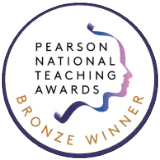Quotes
“Scientists have become the bearers of the torch of discovery in our quest for knowledge.” – Stephen Hawking
“I seem to have been only like a boy playing on the seashore, and diverting myself in now and then finding a smoother pebble or a prettier shell than ordinary, whilst the great ocean of truth lay all undiscovered before me.” – Isaac Newton
“Nothing in life is to be feared, it is only to be understood. Now is the time to understand more, so that we may fear less.” ― Marie Curie
“The whole of science is nothing more than a refinement of everyday thinking.” – Albert Einstein
“You cannot teach a man anything; you can only help him discover it in himself.” – Galileo
Purpose
The purpose of the science curriculum is to provide students with the foundations for understanding the world through specific disciplines of biology, chemistry and physics. The students are taught essential aspects of the knowledge, methods, processes and uses of science. Our aim is to create scientifically literate citizens who can engage in an informed way with scientific issues that affect them and society. In addition to this grounding of subject specific knowledge, we want students to be able to apply their knowledge to new and varied situations and to utilise the methodologies of scientific enquiry and competency in practical skills in order to ask further questions about the natural world.
KS3 Knowledge Organisers
KS4 Knowledge Organisers
Subject Leader/s
Mrs M Rashid – [email protected]




